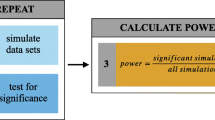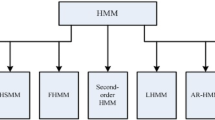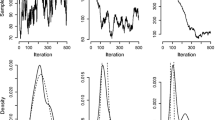Abstract
The theory of random propositions is a theory of confirmation that contains the Bayesian and Shafer—Dempster theories as special cases, while extending both in ways that resolve many of their outstanding problems. The theory resolves the Bayesian “problem of the priors” and provides an extension of Dempster's rule of combination for partially dependent evidence. The standard probability calculus can be generated from the calculus of frequencies among infinite sequences of outcomes. The theory of random propositions is generated analogously from the calculus of frequencies among pairs of infinite sequences of suitably generalized outcomes and in a way that precludes the inclusion of contrived orad hoc elements. The theory is also formulated as an uninterpreted calculus.
Similar content being viewed by others
References
Earman, J. 1992:Bayes or Bust: A Critical Examination of Bayesian Confirmation Theory, MIT Press, Cambridge, MA.
Iyanaga, S. and Y. Kawada: 1980,Encyclopedic Dictionary of Mathematics, trans. K. O. May, MIT Press, Cambridge, MA.
Nguyen, H. T.: 1978, ‘On Random Sets and Belief Functions’,Journal of Mathematical Analysis and Applications 65, 531–542.
Norton, J. D.: 1988, ‘Limit Theorems for Dempster's Rule of Combination’,Theory and Decision 25, 287–313.
Shafer, G.: 1976,A Mathematical Theory of Evidence, Princeton University Press, Princeton.
Shafer, G.: 1990, ‘Perspectives on the Theory and Practice of Belief Functions’,International Journal of Approximate Reasoning 4, 323–362.
Shafer, G.: 1992, ‘Rejoinders to Comments on “Perspectives on the Theory and Practice of Belief Functions”’,International Journal of Approximate Reasoning 6, 445–480.
von Mises, R.: 1957,Probability, Statistics and Truth, 2nd ed. Dover, New York, 1981.
Author information
Authors and Affiliations
Additional information
I am grateful to Frank Arntzenius, John Earman, Allan Franklin, Teddy Seidenfeld, Brian Skyrms, Sandy Zabell and an anonymous referee for helpful discussion.
Rights and permissions
About this article
Cite this article
Norton, J.D. The theory of random propositions. Erkenntnis 41, 325–352 (1994). https://doi.org/10.1007/BF01130758
Received:
Revised:
Issue Date:
DOI: https://doi.org/10.1007/BF01130758




